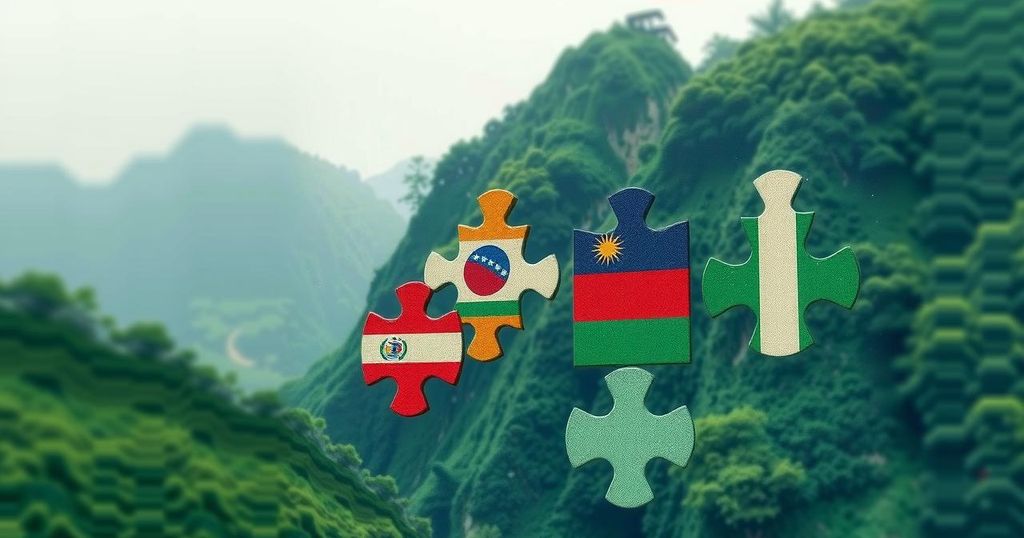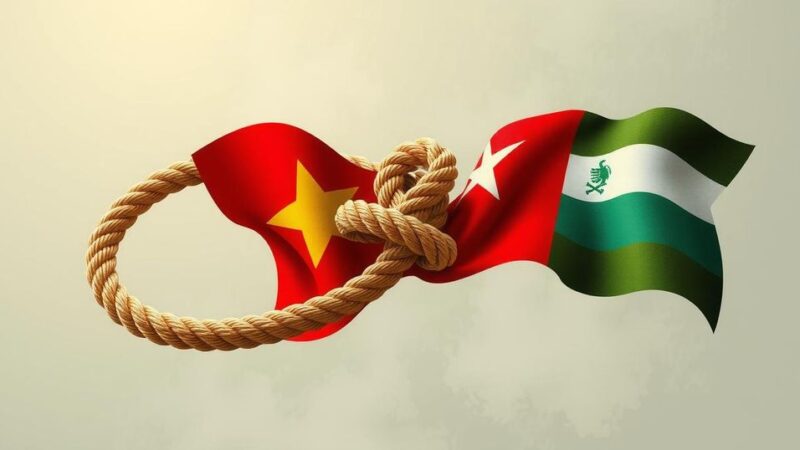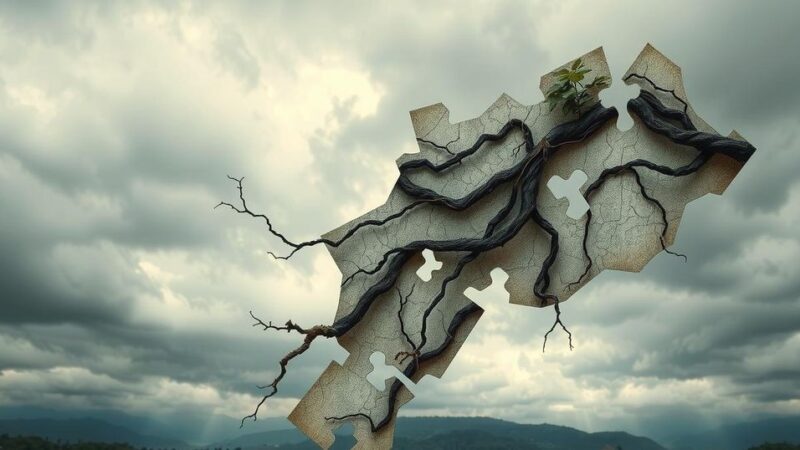The DRC crisis is marked by the M23 rebels seizing control in the mineral-rich eastern region, prompting involvement from neighboring countries like Rwanda, Burundi, and Uganda. DRC President Tshisekedi aims to regain lost territory and maintains that Rwanda supports M23. Regional powers emphasize their security interests, while South Africa engages diplomatically amid rising tensions. An emergency summit seeks resolutions to the escalating conflict.
The ongoing conflict in the Democratic Republic of Congo (DRC), particularly involving the M23 rebel group, has evolved into a humanitarian and diplomatic crisis. The M23’s control over extensive territories in the mineral-rich eastern DRC has drawn the attention of neighboring nations, resulting in troop deployments and heightened tensions. An emergency summit will convene representatives from both East and Southern African regional blocs to seek resolutions and establish peace in the region.
President Félix Tshisekedi of the DRC is primarily focused on recovering territories seized by the M23 rebels, notably Goma, a significant eastern urban center. He accuses Rwandan leader Paul Kagame of empowering the M23 through military support and aims to safeguard not only his nation’s territory but also his political position amidst internal opposition. Observers highlight the potential for civil unrest or even a military coup amid the ongoing conflict.
Rwanda, under Kagame’s leadership, has historically intervened in the DRC’s affairs, citing self-defense against threats from armed groups involved in the 1994 Rwandan genocide. While Rwanda denies backing the M23, it insists on its right to defend its territory from perceived threats originating from the DRC. Kagame seeks to ensure that the narrative frames the conflict as a domestic issue in the DRC, wishing for direct negotiations between Kinshasa and the M23, despite Kinshasa’s refusal to engage.
Burundi, sharing borders with both Rwanda and the DRC, has deployed troops to counter rebels and assist DRC’s army against the M23. However, tensions persist between Rwanda and Burundi, each fearful of the other’s intentions. As the M23 advances, Burundi’s government expresses dire concerns over potential spillover effects that could threaten its stability, reiterating its commitment to contain the conflict.
Uganda remains a somewhat ambiguous player, providing assistance to the DRC government against militants linked to the Islamic State, while also being accused of indirectly supporting M23 operations. Its troop presence complicates the situation as local communities report seeing Ugandan forces mobilizing in response to rising tensions, prompting fears of a broader conflict that might disrupt regional stability.
South Africa has engaged significantly in the conflict, contributing troops to support DRC forces and facing heavy casualties. This involvement sparked a bitter exchange between South African and Rwandan leaders following fatalities among their soldiers. South Africa emphasizes the need for DRC sovereignty, juxtaposed with Rwanda’s demand for direct engagement between the DRC and the M23.
The crisis in the DRC is marked by a historical backdrop of foreign interventions and regional alliances. The eastern DRC is rich in minerals, which has significantly influenced the political landscape and external interests. The complex interplay of local and regional powers, driven by security concerns and economic ambitions, underscores the challenging path toward peace. As various nations converge on the DRC, the possibility of further destabilization remains a pressing concern for regional stakeholders, necessitating diplomatic efforts to resolve hostilities.
The DRC crisis illustrates a intricate web of regional dynamics, where multiple countries pursue their interests under the guise of defending sovereignty or aiding in domestic issues. As the M23 continues to threaten territory and stability in the DRC, neighboring nations including Rwanda, Burundi, and Uganda play significant yet conflicting roles. Understanding these complexities is essential for fostering dialogue and resolving the humanitarian crisis, as regional leaders prepare for critical discussions aimed at restoring peace and stability.
Original Source: www.bbc.com






